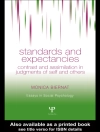In The Many-Minded Man , Joel Christensen explores the content, character, and structure of the Homeric Odyssey through a modern psychological lens, focusing on how the epic both represents the workings of the human mind and provides for its audiences—both ancient and modern—a therapeutic model for coping with the exigencies of chance and fate.
By reading the Odyssey as an exploration of the constitutive elements of human identity, the function of narrative in defining the self, and the interaction between the individual and their social context, The Many-Minded Man addresses enduring questions about the poem, such as the importance of Telemachus’s role, why Odysseus must tell his own tale, and the epic’s sudden and unexpected closure. Through these dynamics, Christensen reasons, the Odyssey not only instructs readers about how narrative shapes a sense of agency but also offers solutions for avoiding dangerous stories and destructive patterns of thought.
Table des matières
Introduction
1. Homeric Psychology
2. Treating Telemachus, Education and Learned Helplessness
3. Escaping Ogygia, An Isolated Man
4. Odysseus’s Apologoi and Narrative Therapy
5. Odysseus’s Lies
6. Marginalized Agencies and Narrative Selves
7. Penelope’s Subordinated Agency
8. The Politics of Ithaca
9. The Therapy of Oblivion, Unforgettable Pain and the Odyssey’s End
A propos de l’auteur
Joel P. Christensen is Professor and Chair of Classical Studies at Brandeis University. He is coauthor of A Beginner’s Guide to Homer and Homer’s Thebes. Follow him on X @sentantiq.












